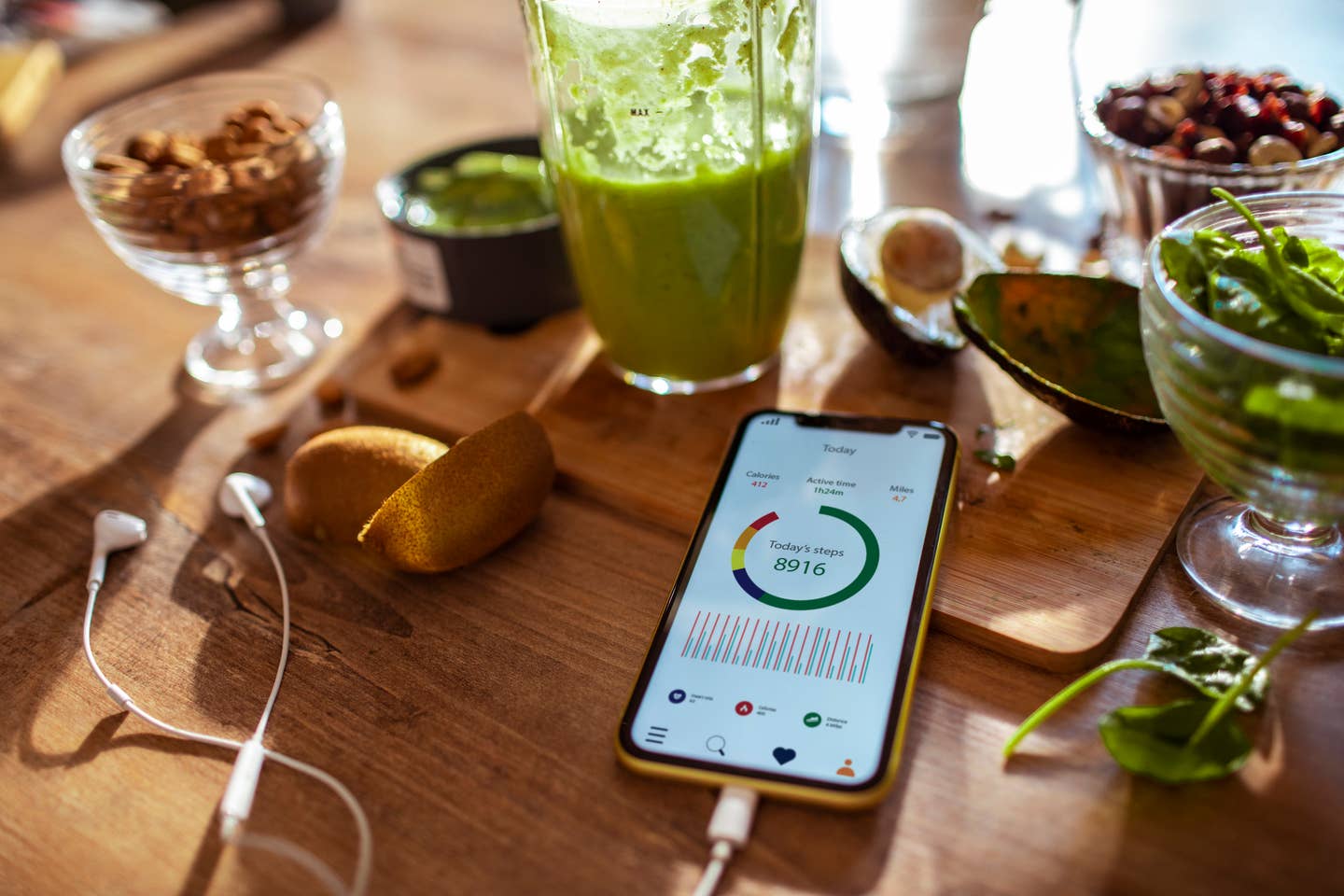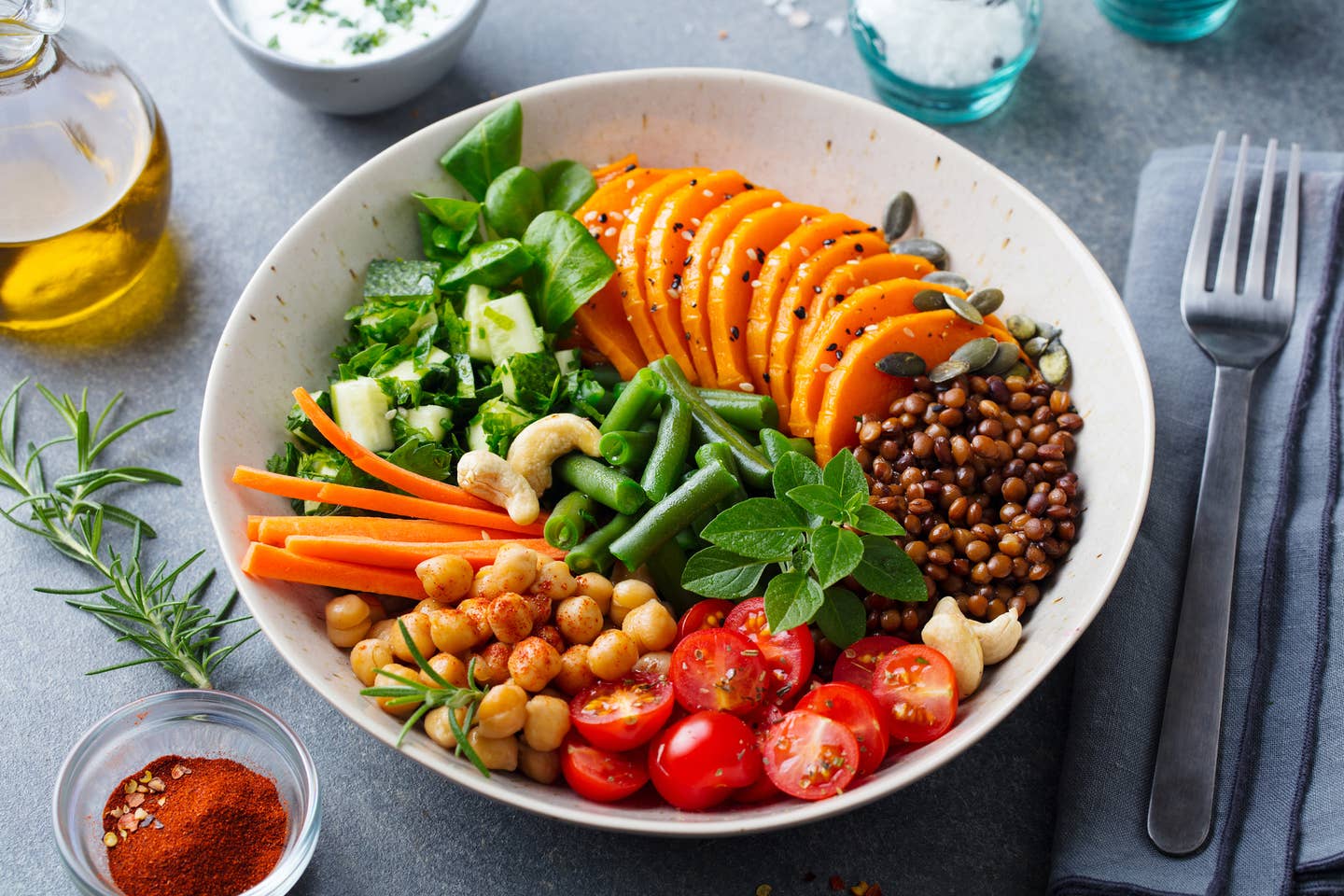
If You Want to Get Lean, Lose Weight and Eat Carbs, This is the Diet Plan to Try
|Updated Sep 25, 2020
Getty ImagesThe latest diet to hit the radar is "Carb Cycling," which essentially allows you to eat more carbs on some days of the week, and is, therefore, more forgiving and sustainable than other low-carb diets, since it provides a schedule for eating carbs and losing weight at a healthy rate.
The reason Carb Cycling is gaining in popularity is that it is easier to stick with than keto, Paleo, or even Intermittent Fasting since it provides allowances for favorite foods and gives you plenty of wiggle room for when you need–or crave–carbs and ready energy, especially if you are active or training for an event. The idea is you get to eat more carbs (three days a week), followed by a moderate amount of carbs (one day a week), and then a minimal amount of carbs (three days a week) and time these days to your workouts.
We wanted to learn more (carb lovers that we are), about how to do it safely and effectively and since we are always hungry for healthy carbs, sp we interviewed Toby Amidor, MS, RD, CDN, FAND, an award-winning nutrition expert and best-selling author of The Create-Your-Plate Diabetes Cookbook and The Best Rotisserie Chicken Cookbook. She consults with food brands and commodities at Toby Amidor Nutrition, and is an expert in carb cycling, and has the info you need to work carb cycling into your weekly exercise schedule, not get too hungry and still lose weight on a healthy plant-based diet.
The Beet: What exactly is carb cycling?
TA: "Endurance athletes traditionally have used carbohydrate cycling to optimize energy. The typical practice is to eat more carbohydrates on days that include an intense physical workout and less carbohydrate on days that require less energy or activity. (Traditionally it has been used by athletes before an event like a race, so they would increase carbs as they approach race day while activity level decreases.)
Recently, carb cycling is being used by the general population to lose weight. It involves going back and forth between high-carb days and low-carb days, or in some cases no-carb days, depending on what you are doing."
This is what carb cycling (for weight loss) advocates tend to recommend:
Strength training days: About 200 grams of carbs, low fat, and moderate protein
Cardio days: Moderate carbs (about 100 grams), moderate protein, and moderate fat.
Rest days: Fewer carbs (about 30grams), high fat, and moderate protein intake
Note: These numbers can vary depending on the individual and there are really no standards for them.
The Beet: Can I use carb cycling on a plant-based diet?
TA: "Yes, you can eat a plant-based diet and use carb cycling for weight loss. There is no single definition of "plant-based" so you can eat a variety of plant foods including fruits, vegetables, grains, legumes, nuts, and seeds, and a moderate portion of lean protein and still carb cycle."
"On those days you would like to eat more carbs, (like on days when you do cardio or strength training) include more whole grains, starchy vegetables, legumes, and fruit, while on days you want to eat fewer carbs increase the nuts, seeds, tofu/soy, vegetables, and protein"
The Beet: How can I lose weight by carb cycling?
TA: "Some people respond to restricted carb intake and lose weight but the reason carb cycling is popular is that trying to be "no-carbs" all the time can have negative consequences like side effects like headaches, digestive distress, bad breath, fatigue, and difficulty concentrating. In addition, as exercise is important when losing weight, eating too few carbs can result in the person having too little energy to do so. That's why two days of no-carbs followed by two days of moderate carbs and two days of more carbs are popular since you can match it to your activity levels."
"If someone is limiting carbs regularly over a long period of time, nutrients such as thiamin, folate, fiber, and vitamins A, E, B6, calcium, iron, and potassium could potentially become deficient. So carb cycling allows you to balance out the no-carb days with the moderate and more carb days."
The Beet: What types of carbs should I eat?
TA: "On those days you are planning to eat more carbs, include more whole grains, starchy vegetables, legumes, and whole fruit. You want to include nutrient-dense carbs that provide lots of nutrition."
The Beet: What types of carbs should I avoid?
TA: "You want to avoid empty calorie carb-like cakes, cookies, chips, processed foods, and such that don't provide many nutrients and do provide lots of added sugars and saturated fat. On days you want to eat fewer carbs, increase the nuts, seeds, tofu or soy, vegetables, and proteins."
The Beet: Can I build muscle carb cycling?
TA: "Carb cycling is typically used with endurance athletes. However, days with zero carbs can negatively impact performance, including strength, speed, and stamina, so only do the no-carb days when you are also taking a day off from intense workouts, since your body may end up losing lean body mass as well as burning fat. It also affects recovery, as carbohydrate is the primary fuel source for endurance, stop-and-go, and high-intensity exercise. So plan to match your carb intake with your workouts."
"Some studies have shown that restricting carbs after working out may not get the desired effect, since carbs are the key to restoring glycogen to your muscles after depleting energy during workouts. The best plan is to intake a moderate amount of carbs after workouts to recover faster since even when protein intake is adequate a lack of carbs can result in decreased muscle protein synthesis."
The Beet: Would you recommend carb cycling for athletes?
TA: "Carb cycling works for anyone, even endurance athletes who train regularly when appropriately used. It's supposed to enable the body to burn fat more efficiently and use excess fat stores as an energy source during exercise and regular activity (like walking). Working with a sports dietitian can help ensure that you're doing it right for the appropriate sport and training. If you're planning to lose weight as you train for an event, it's important to follow proper guidelines to increase your glycogen stores for race day. That's why they call it "carbo-loading."
The Beet: Will I gain weight or feel bloated on a high-carb day?
TA: "You could since carbs make cells hold on to water, which is normal. That's why when you eat low carbs or no carbs you shed water weight. So low carb days may make you believe you've lost weight when it is only water weight. Carb cycling can give you false belief that you are losing weight, but be aware that it can be the fluctuation in water weight."
The Beet: Will I be hungry on a low-carb day?
TA: "You should be fine as long as you eat foods that keep you satisfied, like low-carb vegetables with high fiber content, nuts, and nut butter, with healthy fats, and are high-protein foods."
The Beet: What advice do you have for someone who's starting this diet?
TA: "Carb cycling is not appropriate for people with diabetes or hypoglycemia since they need to regulate their carb intake and be consistent with their blood glucose counts. For someone who wants to try this plan, make sure you do take in carbs to balance your exercise regimen, in order to keep your energy levels up and keep your body healthy. Also be sure to drink plenty of fluids to hydrate throughout the day, especially on exercise days."
"Learning how to incorporate carbs into your diet in a healthy way is what I recommend. If you aren't sure how to do so, see a registered dietitian nutritionist to help guide you."
More From The Beet

Which Celebrity Diets Actually Work? The Healthiest, and Which to Skip

How to Maintain Weight Loss On a Plant-Based Diet

What to Do After Overeating and Drinking, From an RD

6 Easy Ways to Lose Weight While Following a Plant-Based Diet

Eating During This Time of Day Slows Calorie Burn and Weight Loss

The 22 Best Foods to Lose Belly Fat, Lower Insulin Resistance, From a Doctor
